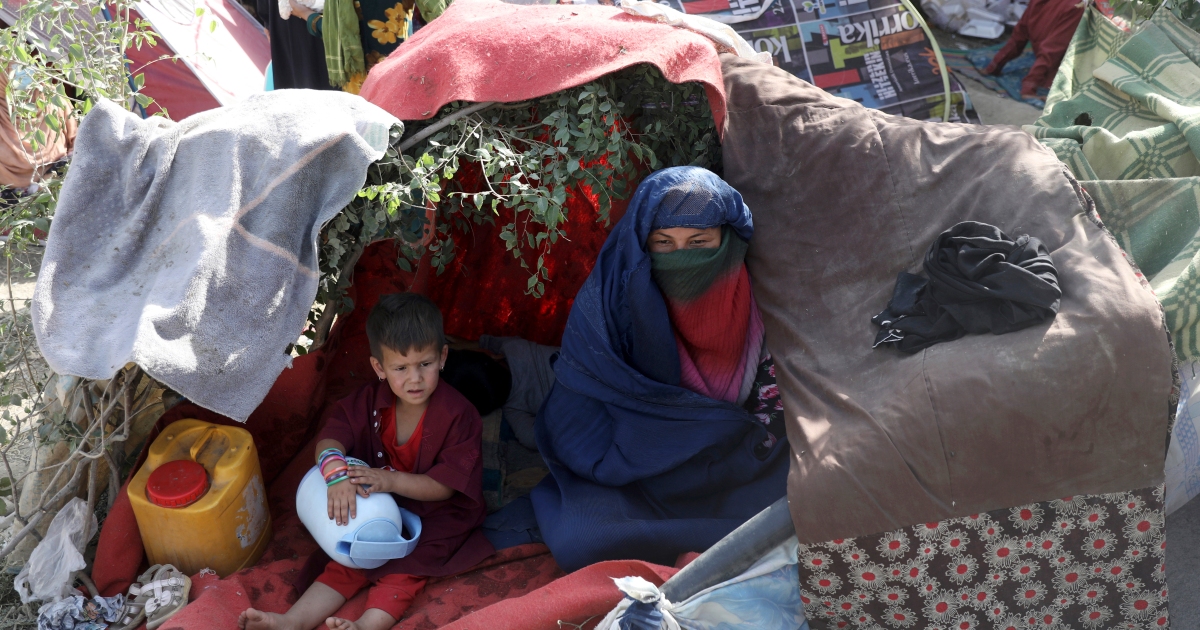Afghanistan’s crisis-stricken economy is in “free fall”, the UN Emergency Relief Coordinator has said, warning that if decisive and compassionate action is not taken, it may “pull the entire population with it”.
Speaking virtually to a summit of the Organization of Islamic Cooperation (OIC) foreign ministers in Islamabad on Sunday, UN Under-Secretary-General for Humanitarian Affairs Martin Griffiths painted a grim picture of unfolding events in the war-ravaged country.
He said 23 million people are battling hunger, malnourished children are teeming in health facilities, 70 percent of teachers are working without salaries, and millions of students are out of school.
The senior UN official, who previously served as the UN special envoy for Yemen, said universal poverty is set to reach 97 percent of the whole population of Afghanistan, marking the next “grim milestone” in the South Asian country.
“Within a year, 30 percent of Afghanistan’s GDP (gross domestic product) could be lost altogether, while male unemployment may double to 29 percent,” he warned.
The economic situation in Afghanistan has been deteriorating as the value of Afghani, the country’s currency, continues to plummet, impeding trade and investments.
The freefall was triggered by the hasty and chaotic withdrawal of the US-led coalition forces from the country in August, followed by the freezing of the country’s assets by Washington and its allies.
Sunday’s summit brought together dozens of foreign ministers as well as special representatives from Islamic countries who discussed the prevailing humanitarian crisis in Afghanistan and ways to tackle it.
While stressing that 70 percent of teachers are working without salaries, Griffiths urged donor countries to show flexibility, allowing their money to pay salaries of public sector workers and support “basic services such as health, education, electricity, livelihoods, to allow the people of Afghanistan some chance to get through this winter and some encouragement to remain home with their families.”
The UN official welcomed the decision by the World Bank’s Afghanistan Reconstruction Trust Fund to transfer $280 million by the end of December to the UN Children’s Fund (UNICEF) and the World Food Program (WFP) and said that the whole fund should be assigned to support the Afghan people this winter.
“Families simply do not have the cash for everyday transactions, while prices for key commodities continue to rise,” he said in his remarks.
The UN official’s warning comes in the wake of a 40 percent increase in prices of wheat and fuel in Afghanistan, with international development support frozen, and basic social services collapsed.
“The cost of wheat and fuel are up by around 40 percent and food now accounts for more than 80 percent of the average household expenditure. Basic social services that all Afghans depend on are collapsing as international development support has frozen up,” he added.
READ ALSO: Latin America rallies to congratulate Chile’s youngest ever leftist president
After the Taliban laid siege to Kabul on August 15 and forced the US-led government to flee, the Joe Biden administration blocked about $ 9.5 billion of Afghanistan’s foreign assets held by its financial institutions, leaving millions of Afghans on the brink of starvation.
“The impact of frozen funds is on the common people and not on Taliban authorities,” Taliban’s Deputy Foreign Minister Sher Mohammad Abbas Stanikzai said on Saturday.
Over the past four decades, more than six million Afghans have fled the country to escape the US-les war and economic crises. Many of these refugees are living in neighboring Iran and Pakistan.
The international community has not yet recognized the Taliban-led government in Afghanistan.a













